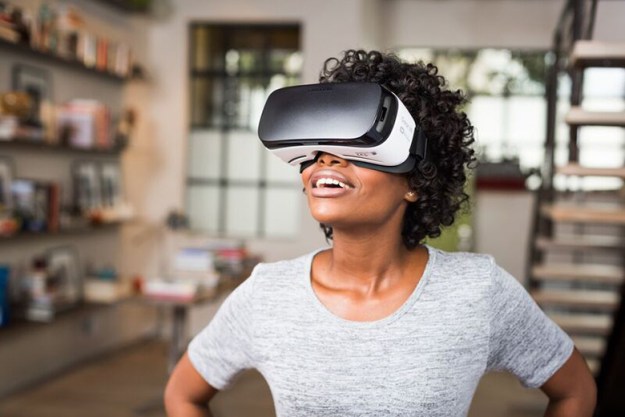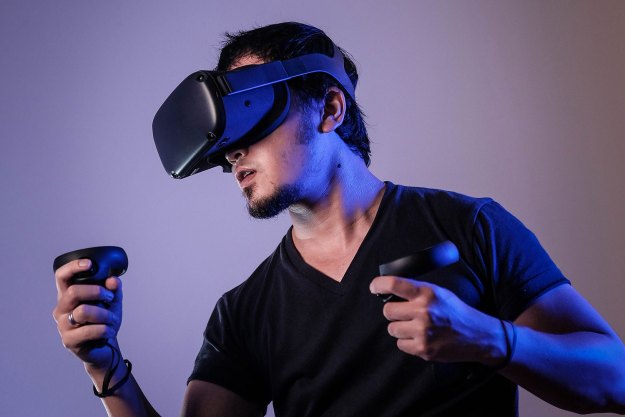HTC has joined the growing ranks of smartphone manufacturers with virtual reality headsets, following Samsung, Google, and LG. Like Samsung, HTC has a big-name partner onboard — gaming giant Valve — and it has unveiled the HTC Vive alongside the HTC One M9 and the HTC Grip fitness band.
The HTC Vive will provide an incredibly immersive experience, incorporate hand tracking, and use the entire room in which you’re standing to create its virtual reality world. The design stands out, ignoring the shininess of the Galaxy VR (which reminded us of Kubrick’s 2001: A Space Odyssey), and going for the tough, industrial look of a VR unit that Hicks in Aliens would wear.
Related: We go hands-on with the HTC One M9 and the HTC Grip
Unlike the Gear VR, the Vive is a full VR headset, more like the Oculus Rift. A 1,080 × 1,200 pixel screen is mounted in front of each eye, with a refresh rate of 90fps, and it’s equipped with a selection of sensors including an accelerometer, a gyroscope, a laser positioning sensor, and support for SteamVR base stations. HTC’s also producing custom game controllers — one for each hand — and there’s a 3.5mm jack on the headset for your own headphones.
HTC is working with a variety of game developers on the Vive, including Bossa Studios UK, Vertigo Games, Steel Wool Games, and Fireproof Games. On the content side, it has signed up Google, HBO, Lionsgate, and Taiwan’s National Palace Museum. Using Valve’s SteamVR platform, HTC’s promising a wide variety of games and video will be available through the Steam store.
The Vive will be on sale by the end of the year, but developers will be able to grab a unit in the spring. If you’re wondering how much one will cost, then you’ll have to be patient, as there’s not even a cost attached to the development unit at this early stage. Still, it’s exciting to see HTC head off in yet another new direction, and with the attention VR is attracting, provided it gets it right, the Vive could indeed be instrumental in HTC’s continued re-vive-al.
Editors' Recommendations
- The Apple Vision Pro has given VR its iPhone moment
- We finally might know what Apple will call its AR/VR headset
- Apple VR rumored to run on Mac chipset
- HTC aims to turn your carpool into a VR roller coaster
- PlayStation VR2 is lighter and larger than PS VR





